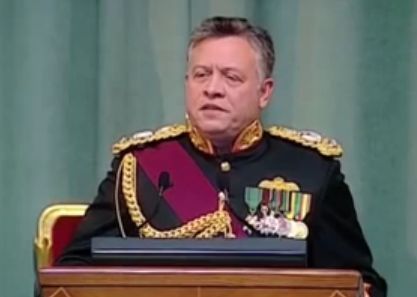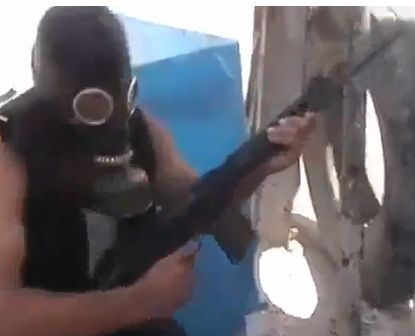Israel and the Palestinians
• Israeli Air Force Sgt. Tomer Hazan was kidnapped and murdered by a Palestinian acquaintance who sought to use Hazan as a bargaining chip to get his brother released from prison. Shortly afterwards, IDF Sgt. Gabriel Kobi was killed by a sniper’s bullet in Hebron. Mahmoud Abbas condemned the terror, but not right away. (Official PA media ignored its president’s remarks.)

• The IDF blocked an EU/Palestinian attempt to rebuild West Bank structures that Israeli courts ruled were illegal. A French cultural attache, Marion Fesneau-Castaing, who was involved and tried to assault an IDF soldier, will be expelled from Israel.
• Hamas uses Chinese banks for money laundering, reports Haaretz:
A Shin Bet security service investigation reveals that China is a central financial channel for funding Hamas activity worldwide. Its February-March 2012 probe connected Chinese banks to the transference of money to Hamas prisoners. The Shin Bet seized numerous documents of the transfers and a list of accounts in which the money was deposited in China.
• Jerusalem Post: To placate Egypt, Hamas wants to allow the PA to partially supervise Gaza/Egypt border crossing. But the PA’s not biting.
• In a NY Times op-ed that made some buzz, Israeli MK and deputy defense minister Danny Danon argued that Israel should annul the Oslo accords.
• Mordechai Kedar explains why Hamas is fueling the flames of intifada. (It’s after his observations on Egypt.)

• Khaled Abu Toameh reports that Jordan’s King Abdullah nixed a Hamas request to re-open its offices in the kingdom:
By rejecting requests to allow Hamas to return to Jordan, King Abdullah has shown that he has no intention to serve as lifesaver for failed Islamists who are facing growing opposition from their own people in the Gaza Strip.
Which leaves YNet asking where the Hamas leadership will relocate: Lebanon, Iran, or Sudan?
• Hmmmm. Times of London columnist David Aaronovitch points out that even if there was no Israeli-Palestinian conflict, UK Jews like himself would still confront anti-Semitism.
The Syrian Situation
• Uh-oh. The 13 largest rebel factions created an Islamic Alliance. Daniel Nisman (Wall St. Journal) explains why that’s bad news:
While rebel alliances in Syria are often short-lived, the creation of the Islamic Alliance has the potential to make anti-Assad moderates extinct. The Alliance is a potent concoction of some of the most popular and combat-effective units, which have united under a dangerously anti-Western banner.
Meanwhile, a recent study concluded that nearly half of the Syrian rebels are jihadists (including the foreigners). The Daily Telegraph writes:
Charles Lister, author of the analysis, said: “The insurgency is now dominated by groups which have at least an Islamist viewpoint on the conflict. The idea that it is mostly secular groups leading the opposition is just not borne out.”
• Mouid Jumaa became the first Israeli Arab killed fighting with Syrian rebels.

• According to the Washington Post, dismantling Syrian chemical weapons may be easier than thought.
U.S. and Russian officials now believe that the vast majority of Syria’s nerve agent stockpile consists of “unweaponized” liquid precursors that could be neutralized relatively quickly, lowering the risk that the toxins could be hidden away by the regime or stolen by terrorists.
• A Syrian army defector confirmed dozens of chemical attacks and that Hezbollah has already received chemical weapons. Brigadier General Zaher Saket is certainly in a position to know. Before defecting, he was a commander of chemical warfare. More at The National.
• Dore Gold looks at the experiences of weapons inspectors in Iraq and Libya to see what the future might hold for Syria.
• Ronen Bergman‘s latest is worth reading: The Spies Inside Damascus — Why Israel Has the Best Intelligence on What’s Going On in Syria.
• Worth reading: Reuters takes an in-depth look at Hezbollah’s involvement in Syria.
• Mamas, don’t let your babies grow up to be journalists. According to the NY Observer (via Romenesko), an awful lot of Syrian coverage (as well as other Arab Spring doings) comes from just-graduated free-lance reporters exploited by editors.
Mr. Oghanna said writing on spec means “no one has your back. If something goes wrong, you have no institutional support. You’re alone. No one to coordinate a release if you’re kidnapped, to help you seek medical assistance, to notify your loved ones if something bad happens,” Mr. Oghanna told The Observer. “It also means you have less credibility in the field. If you are kidnapped and accused of being a spy, you don’t really have much evidence to disprove it.”
Arab Spring Winter
• Polar Sea Lane Finds Favor as Suez Security Doubts Grow: A vessel sailing from China to Holland via the Bering Strait and Northeast Passage (that’s Russian Arctic waters) cut the trip by nine days and 28,000 miles, thanks to the Arctic Ocean’s retreating ice. Another cargo ship crossed the Northwest Passage (Canadian Arctic waters). On a related note, an LA Times op-ed wonders what will happen if insurgents succeed in closing the canal.

• An Egyptian court banned the Muslim Brotherhood, but it’s just the latest example of Calvinball in Cairo.
• According to the Columbia Journalism Review, Egypt’s anti-Brotherhood media crackdown is worse than the broad censorship abuses during the Morsi regime:
Though the reputedly pro-Morsi media have suffered the worst of the crackdown, many of the journalists caught in the sweep do not fit the stereotype of the Islamist media.
Rest O’ the Roundup
• Greg Sheridan forecasts the new Australian government’s treatment of Israel in the UN:
• Top 10 Responses to Campus Anti-Semitism
• In the wake of the Kenyan mall terror,the Times of India reports that Israeli security agencies will be brought to Mumbai to help protect sites of Jewish interest.
(Image of King Abdullah via YouTube/televova rdasum, gas mask via YouTube/syriawarnews, sea routes via Wikimedia Commons)
For more, see the previous Israel Daily News Stream.
[sc:bottomsignup]
